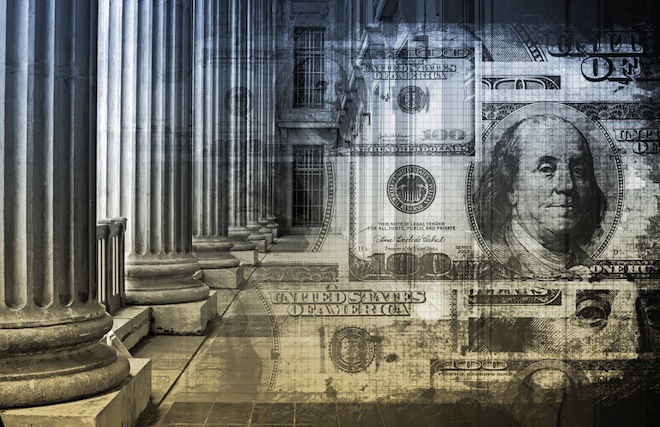The deductions, loopholes, and credits in the federal tax code disproportionately benefit the highest earners, according to a new study by the nonpartisan Congressional Budget Office.
Seventeen percent of all deductions, loopholes, and credits — collectively called “tax expenditures” — go to the top 1 percent of American households, Congress’s in-house think tank found in the report released Wednesday.
The report zeroed in on the 10 largest tax expenditures. It found that 50 percent of the total value of those expenditures benefit the top 20 percent of earners. The second 20 percent of earners received less than 20 percent of the total value, and the share of benefits continued to drop steadily among lower income levels. Thirteen percent of tax expenditures went to households in the middle quintile and just 8 percent to those in the bottom quintile.

The 10 largest tax expenditures in fiscal 2013 included tax exclusions for employer-based health insurance, pensions, capital gains on assets transferred at death and Social Security benefits; itemized deductions for state and local taxes, mortgage interest payments and charitable contributions; preferential tax treatment of capital gains and dividends; and tax credits like the earned income tax credit and child tax credit. These expenditures total more than $900 billion — or 5.7 percent of national output.
The report highlights an important driver of national income inequality, which has risen to the highest levels since the Great Depression and continues to escalate. It’s already affecting the debate over tax reform in Congress, the prospects for which are slim at best.
“The CBO report underscores the need to go beyond the rhetoric of lowering tax rates without indication of how that would be achieved or the implications for economic growth and tax equity,” said Rep. Sander Levin (D-MI), the top Democrat on the tax-writing Ways & Means Committee. “The preferences that benefit the very wealthy highlight the ability to obtain the needed revenues to address the sequester and achieve a balanced approach to tax reform.”
House Budget Chairman Paul Ryan (R-WI) said Wednesday on CNBC that Washington is “picking winners and losers based upon loopholes, based upon who you know. We want to get out of that business, get our tax rates down, so it’s fair across the board.”
William Allison, Ryan’s spokesman, told TPM that “CBO’s report makes it clear: Our tax code is broken. It’s complex and unfair. It stifles job creation,” he said. ‘The House-passed budget calls for a simpler code that lowers rates for all Americans.”
Rep. Chris Van Hollen (D-MD), the Democrats’ leader on budget issue, said the CBO study stresses the need to reduce the deficit by limiting the tax deductions and credits available to upper income earners. “If you look at the skewing of the tax preferences here,” he said, “it indicates very clearly that we could achieve a significant amount of deficit reduction by limiting these preferences for the highest income earners — the top 1 percent.”
The CBO report’s findings affirm that the major expenditures are among the more regressive elements of the tax code. After-tax income across the distribution was found to be more progressive when considering the totality of federal tax policies.
Income inequality is a trickier issue for Republicans as studies suggest their budget and tax reform proposals would disproportionately benefit upper income earners.
CBO Report On Tax Expenditures
Photo credit: Shutterstock/ kentoh










